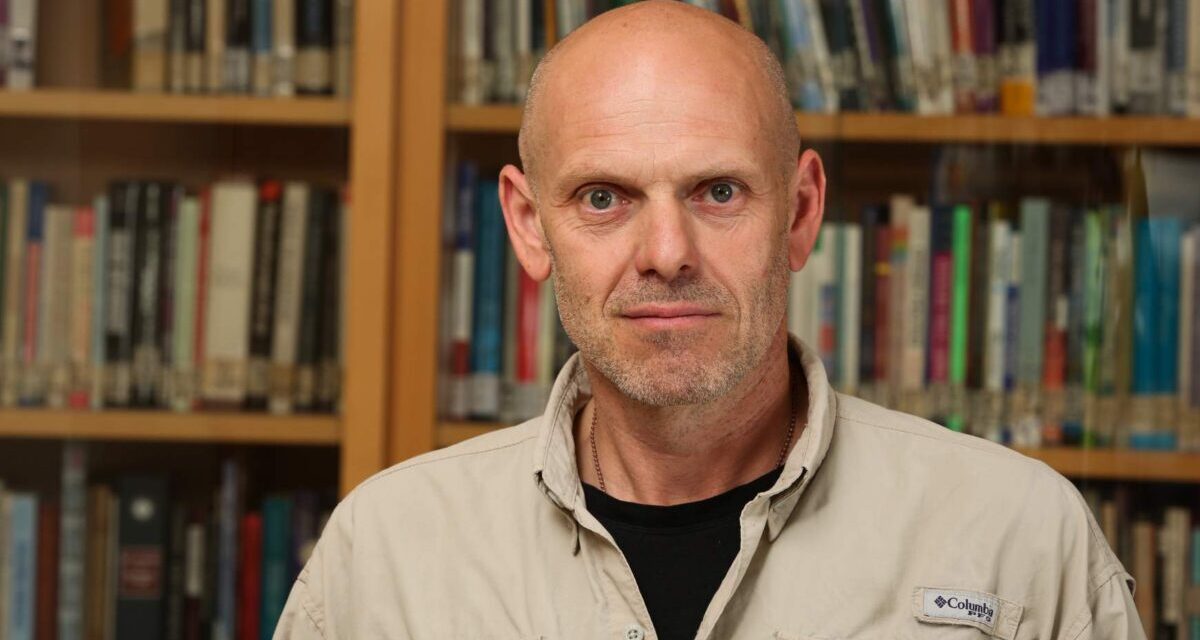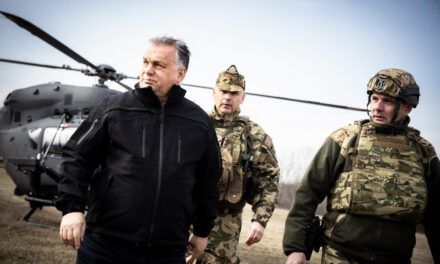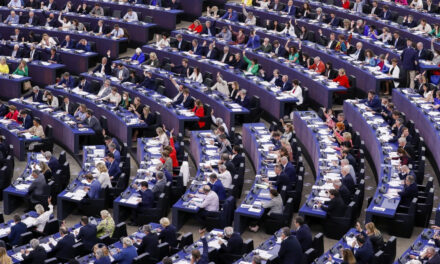I'm not sure that the Hungarian public understood what happened: not one terrorist was injured, but three thousand people, eight hundred of whom were seriously injured, and twelve died," the security policy expert listed.
As we reported, a Hungarian company was also brought into the news with a mass attack against Hezbollah, during which text messaging devices and tweeters with their maiden names exploded, presumably caused by a small amount of explosives hidden in the tweeters, activated by an organized, probably Israeli hacker attack.
The news about the exploding beeper leads to Hungary - WITH VIDEO
The explosions injured around three thousand people who used the terrorist organization's tools (that is, they are practically likely to be terrorists), eight hundred of them seriously. Twelve people died, many had their faces and eyes damaged by the smaller explosions.
The owner-manager of the Hungarian company, BAC Consulting, Cristiana Bársony-Arcidiacono, confirmed that they have a contract with Taiwan's Gold Apollo, which distributes the device; however, he claimed that they did not manufacture, but only brokered the devices.
Despite everything, probably every terrorist in the Middle East already knows the name of the managing director of the company registered in Zugló, about whom many wilder and wilder theories have already arisen.
Robert C. Castel, a security policy expert living in Israel, who had previously predicted that the conflict between Israel and the Shiite, Iranian-backed Hezbollah, which is also strong in Lebanon, would escalate, tried to explain what could have happened and even more: what can be expected in relation to the case .
According to Castel, they could not have done anything bigger to Hezbollah than with this hasty procurement of whistleblowers.
"If it had been bought on E-Bay, it would have been even safer than this," the expert said.
According to him, operational procurement is the safest, if you can no longer cover the entire supply chain from the production of components to assembly to delivery and commissioning, then you have to include random things, such as walking into a store in an unplanned way and there to buy; because then the enemy does not have the opportunity to prepare and sell hacked devices to the organization.
"All this was necessary because the terrorist organization noticed that anyone who uses a mobile phone, laptop, or other modern device has a "dramatically reduced lifespan," explained Castel.
The solution was that Hezbollah hastily procured thousands of beepers from a Taiwanese manufacturer, confident that the older technology was more secure against Israeli intelligence.
Castel approached this question from two directions. On the one hand: the terrorist organization did not use one type of beeper, but four, so it is not certain that it was the hacked device; or among the hacked devices was what is now being pointed to in connection with Hungary.
On the other hand, and this is more important, if the package that was linked to Hungary was involved at all, the company based in Zugló was only one link in the entire supply chain, before and after they could "peek into the peeps".
Regardless, it doesn't hurt to be careful. "I'm not sure that the Hungarian public understood what happened: not one terrorist was injured, but three thousand people, eight hundred of them seriously, twelve died," Castel listed.
The situation is much more complicated than what may be in the minds of many, that is, that Hezbollah ordered thousands of devices in Taiwan, and then, with the intervention of the Mossad, it was hacked in a bakery in Zugló in Hungary.
And then we didn't even talk about the possibility of disinformation that spread in the press following The New York Times, that is, that the beepers were assembled here, in Hungary. After all, the Taiwanese company did not present any evidence for this beyond the accusations.
Robert C. Castel is nevertheless concerned for the Hungarian business owner. "So I think he has something very serious to fear, not only for him, but also for his family, friends, and business partners."
The Israeli expert adds: "Hezbollah wants to learn from this so that it doesn't get a similar surprise in the future, in a word, it starts an investigation, not mindless revenge, or, using technical terms, restoring deterrence."
Regardless, it doesn't hurt to be careful. "I'm not sure that the Hungarian public understood what happened: not one terrorist was injured, but three thousand people, eight hundred of them seriously, twelve died," Castel listed.
Virtually all of Hezbollah was left without a communications system that could be considered safe from Israeli surveillance.
Meanwhile, the leaders of the organization are in hospital, and the strike capability of the entire Hezbollah has been drastically reduced.
The Israeli expert adds: "Hezbollah wants to learn from this so that it doesn't get a similar surprise in the future, in a word, it starts an investigation, not mindless revenge, or, using technical terms, restoring deterrence."
At the same time, Castel could not answer what level of protection the head of the Hungarian company could receive after all this.
As he said, by definition, the professional services cannot want foreign powers to fight their wars here in violation of Hungary's sovereignty, but at the same time, a public dignitary, or even a civil servant, deserves a different level of protection than the manager of a private enterprise.
"Maybe this is not even the competence of the secret service, but rather of the police," he added, saying: in Israel, the executive would not receive special protection in this case, nor would he be entitled to the various witness protection programs. If it were, it would be possible to exchange them with foreign persons who participate in witness protection programs there, there are such exchange agreements, the expert pointed out.
In any case, he added: there were definitely precedents for terrorist actions carried out in similar cases abroad, even in Europe, but at the same time the statistics beneficially cover up these cases;
and the terrorists can also have enough common sense that they do not anger even the European services in such a vulnerable situation with a very obvious action.
It is true that revenge is also an extremely important aspect in the Middle East, but it is unlikely that an organization would demonstrate its power primarily on a Hungarian person, and perhaps not even on a Taiwanese company - after all, it would be a rather bad message for the entire IT sector. strike one of the potential business partners before the next procurement by Hezbollah.
This leaves us with the equally unpleasant but perhaps less deadly version: when the terrorist organization starts an investigation.
Here, however, the Hungarian services will have to defend the country's sovereignty.













